Innovation, Collaboration, Development — Yanqi Energy Forum 2025 Successfully Held
Release Time:2025-08-05
On July 31, 2025, the 2025 Yanqi Energy Forum, co-hosted by Huairou Laboratory and the National Energy Laboratory System Innovation Alliance, was successfully convened. Themed “Energy Horizon: Innovation, Collaboration, and Development”, the forum featured a main session along with parallel forums on next-generation power systems, renewable energies, hydrogen technologies, fossil energy technologies, doctoral research, and commercialization of R&D achievements. The event focused on future development trends in the energy sector, key technological challenges, and innovative cooperation mechanisms, bringing together global expertise to chart future development pathways for the energy sector, with innovation as the engine and cooperation as the bond.
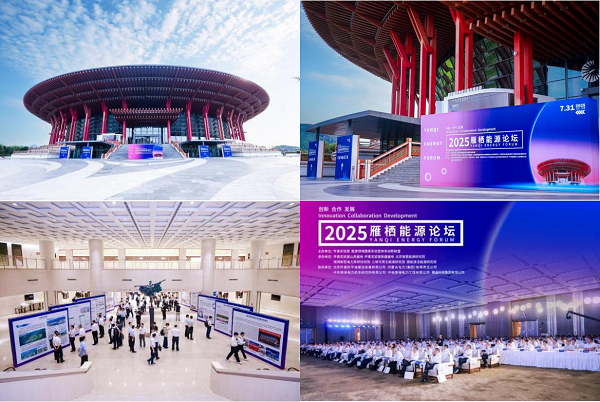
Attending the forum were Yu Yingjie, Member of the Standing Committee of the CPC Beijing Municipal Committee, Secretary of the Education Working Committee, and Party Secretary of Huairou Laboratory; Sui Zhenjiang, Member of the Leading Party Members’ Group of the Beijing Municipal Government and Party Secretary of Qiyuan Laboratory; Wang Song, Deputy Director-General of the 6th Department of the Ministry of Science and Technology; Xu Jilin, Deputy Director-General of the Department of Energy Conservation and Science & Technology Equipment of the National Energy Administration; Zhu Jianhong, Deputy Director of the Beijing Municipal Science and Technology Commission and the Administrative Commission of Zhongguancun Science Park; Zhou Jian, Second-level Inspector of the Beijing Municipal Development and Reform Commission; Lan Xiongjing, Deputy Director of the Huairou Science City Administrative Committee and Deputy District Mayor of Huairou District; Sun Yongcai, Party Secretary and Chairman of CRRC Corporation Limited; responsible officials from the Departments of Science and Technology of Shanxi Province, Xinjiang Uygur Autonomous Region, and Inner Mongolia Autonomous Region; academicians and experts including Li Licheng, Peng Suping, Yue Guangxi, Sun Longde, Chen Weijiang, Liu Jizhen, Shu Yinbiao, Lü Junfu, Guo Xusheng, Gao Xiang, Zheng Nanfeng, Zeng Rong, Bie Chaohong, and Bi Tianshu; renowned international experts such as Dushan Boroyevich, Marcio Szechtman, and Rainer Kaesmaier; leaders of member institutions of the National Energy Laboratory System Innovation Alliance; representatives from state key laboratories in the energy sector; over 20 universities including the University of Hong Kong, Zhejiang University, and the University of Science and Technology of China; more than 30 research institutions including the National Center for Climate Change Strategy and International Cooperation (NCSC) and the State Power Investment Corporation Research Institute; over 50 enterprises including State Grid Corporation of China, China Southern Power Grid, China Three Gorges Corporation, and China Energy Investment Corporation; as well as more than 700 participants comprising the leadership team, functional departments, research teams, and affiliated entities of Huairou Laboratory.
At the main session, speeches were delivered by Yu Yingjie, Wang Song, Xu Jilin, and Lan Xiongjing.
Yu Yingjie noted that in the four years since its establishment, Huairou Laboratory has undertaken national missions and scaled new heights in the energy sector. It has made solid progress in major research tasks, accelerated the gathering of top-tier talent, expanded its network of collaborators, and produced a number of landmark achievements, advancing from the preparation stage to high-quality development at full speed. He stressed the need to always keep in mind the nation’s major interests, enhance the role of Huairou Laboratory as the “central platform and chain leader,” strengthen collaborative scientific research efforts, and deepen international cooperation to make greater contributions to China’s low-carbon energy transition and the building of a strong scientific and technological nation.
Wang Song highlighted the remarkable achievements of Huairou Laboratory in breakthroughs in key technologies, commercialization of research outcomes, and talent cultivation, noting its active contributions to supporting the implementation of the national energy strategy. He emphasized the need to continue leveraging the advantages of the new nationwide system for mobilizing resources, strive to build a world-class research institution with international influence, and advance the integrated development of industry, academia, and research to achieve high-level self-reliance and self-strengthening in science and technology.
Xu Jilin underlined that energy science and technology innovation is the core driving force for ensuring energy security and transformation. He expressed the hope that Huairou Laboratory would continue to focus on breakthroughs in key technologies, play a leading role as a think tank, strengthen its support for the management of major national science and technology programs, and contribute more to the building of a new energy system.
Lan Xiongjing noted that Huairou Laboratory has become an important platform for science and technology innovation and energy industry development in Huairou District. He pledged that the district would continue to improve the innovation ecosystem and actively support the transformation of the Laboratory’s scientific research achievements.
Tang Guangfu, Director of Huairou Laboratory, reviewed the Laboratory’s four-year development journey and shared its future prospects. The first stage of the forum was chaired by Fang Li, Deputy Secretary-General of Huairou Laboratory.
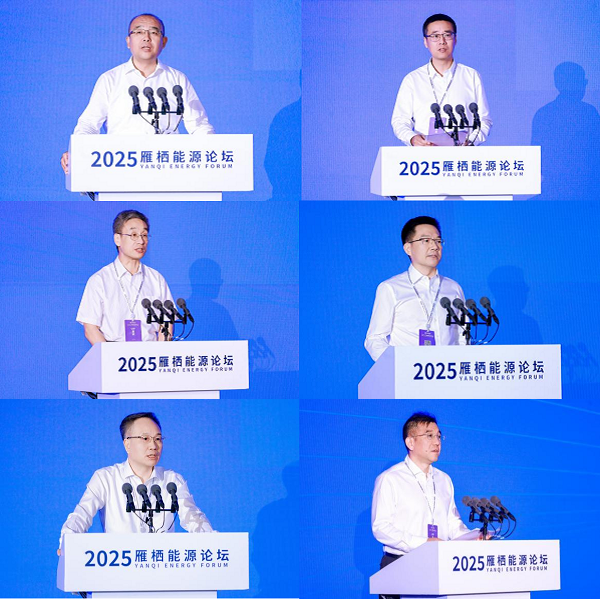
During the forum, representatives of the National Energy Laboratory System Innovation Alliance (hereinafter referred to as the “Alliance”) jointly unveiled the Alliance plaque. The Alliance was co-initiated by Huairou Laboratory together with 15 state key laboratories and 2 provincial- and ministerial-level laboratories in the energy sector. It aims to accelerate the building of a strategic scientific and technological force in the energy sector, promote the establishment of a national laboratory system with Chinese characteristics in the energy field, and contribute to achieving high-level self-reliance and self-strengthening in science and technology.
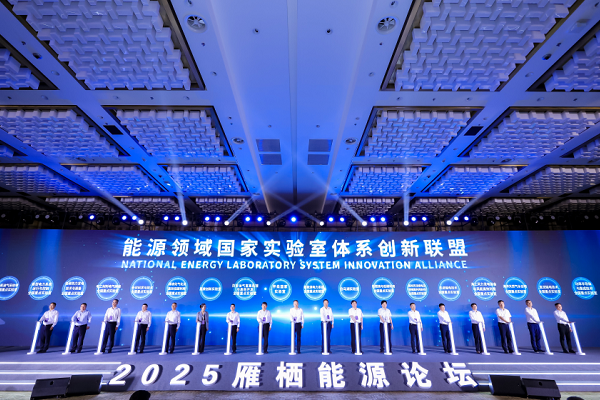
Following this, the forum held an industrial cooperation signing ceremony. Huairou Laboratory signed an IGCT Device Project Settlement Agreement with the Huairou District People’s Government and CRRC Corporation Limited; a 500kV DC Cable Material Technology Commercialization Cooperation Agreement with Wanhua Chemical Group; and a Silicon Carbide Technology Commercialization Cooperation Agreement with Jiangsu Hongwei Technology Co., Ltd. These agreements, involving technology transfer through equity investment based on scientific and technological achievements, aim to accelerate the industrialization of key technological breakthroughs such as IGCT devices, high-voltage cable materials, and silicon carbide power semiconductor devices. They are expected to strengthen the precise alignment of innovation and industrial chains, and to foster the development of new quality productive forces at a faster pace.
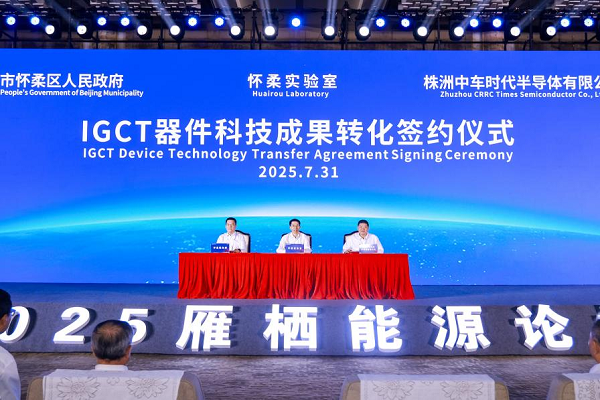
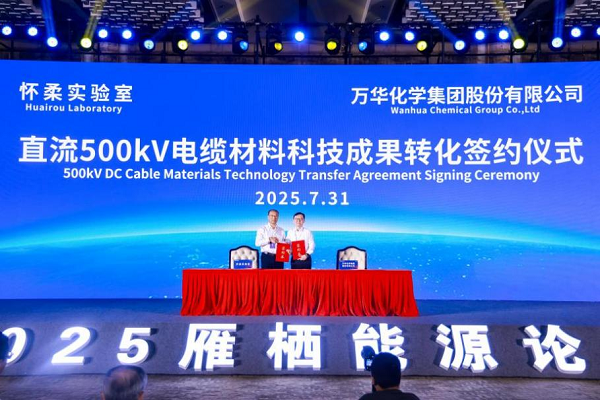
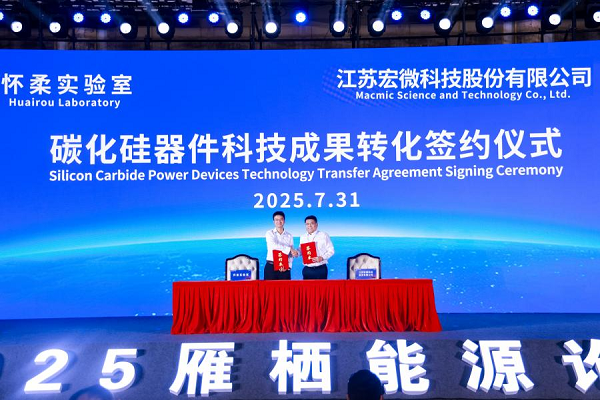
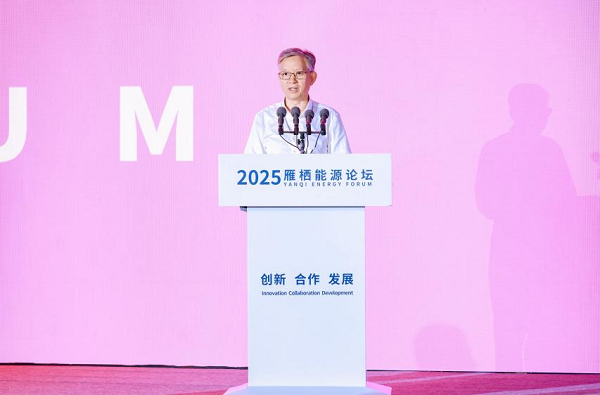
The second stage of the forum was chaired by Chen Weijiang, Academician of the Chinese Academy of Sciences and a leading scientist of Huairou Laboratory research team. Six renowned experts from the industry delivered keynote speeches.
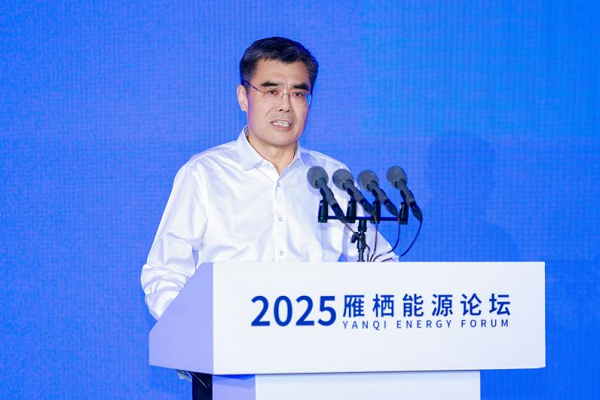
Shu Yinbiao, Academician of the Chinese Academy of Engineering, Head of the Expert Group of Huairou Laboratory, and leader of research team, delivered a keynote speech entitled “Research and Thoughts on the Development Form and Construction Technology of Next Generation Power System” He shared the significant achievements of China in building new power systems, outlined the development paths and forms, as well as the scientific and economic issues involved, and proposed innovative research directions in areas such as medium- and long-term power demand forecasting, meteorological power science, new theories of power-energy balance, and new market mechanisms for power systems. His insights provided systematic strategic guidance for achieving China’s dual carbon goals.
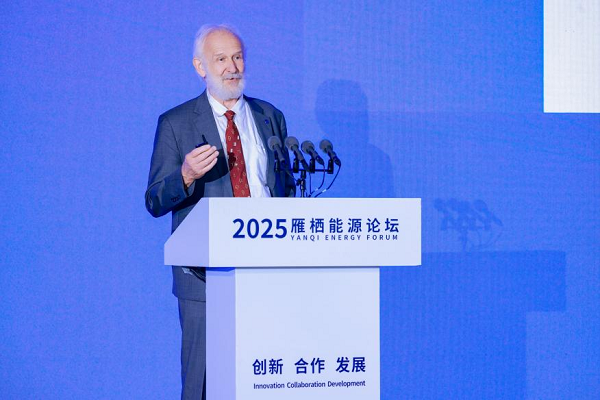
Dushan Boroyevich, Member of the U.S. National Academy of Engineering and Distinguished Professor at Virginia Tech, gave a keynote speech titled “Constructing a Future Electronic Power System.” Focusing on the goals of renewable energy transition, he analyzed the technological pathways and challenges of new power systems across generation, transmission, distribution, and consumption, offering guidance on building a future power system dominated by power electronics.
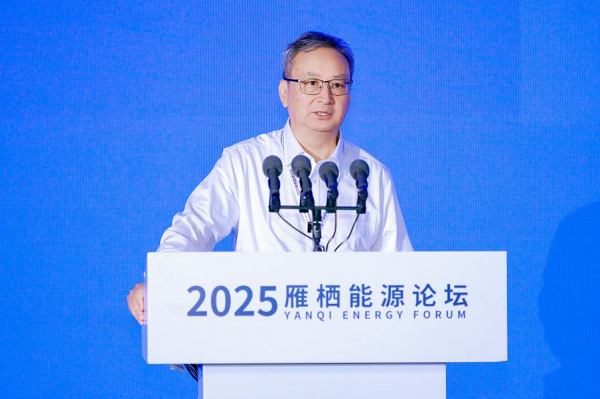
Sun Longde, Academician of the Chinese Academy of Engineering and Director of the Xinjiang Base of Huairou Laboratory, delivered a keynote speech titled “Key Features of New-type of Oil and Gas Exploration and Development.” Reviewing the history of oil and gas exploration and development, he elaborated on the defining features of innovative approaches in this field. He focused on three major areas: ultra-deep drilling at depths of 10,000 meters, nano-scale technologies, and low-carbon transitions. He also shared the latest progress in ultra-deep drilling projects, continental shale oil development, coalbed methane extraction, and green multi-energy collaborative approaches in oil- and gas-bearing basins.
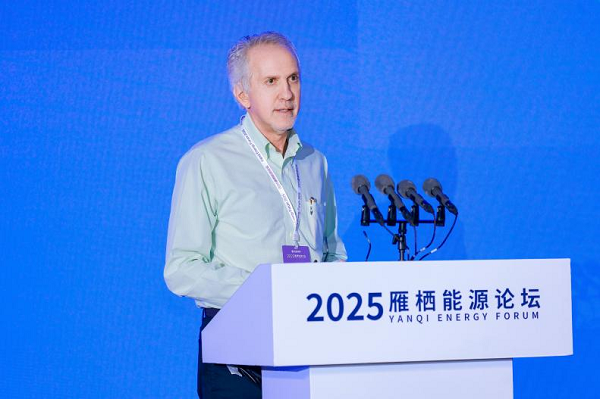
Marcio Szechtman, former Technical Committee Chair of the International Council on Large Electric Systems (CIGRE), presented a keynote speech entitled “Cooperation in International Organizations to Boost Application of Innovative Power Transmission Technologies.” His speech addressed the challenges posed by renewable energy integration to power system stability. Drawing on case studies from Brazil, Chile, and Western Europe, he revealed the cascading risks triggered by high proportions of wind and solar energy. He also explored potential avenues for international cooperation and advocated promoting the global energy transition through the CIGRE framework for standardization.
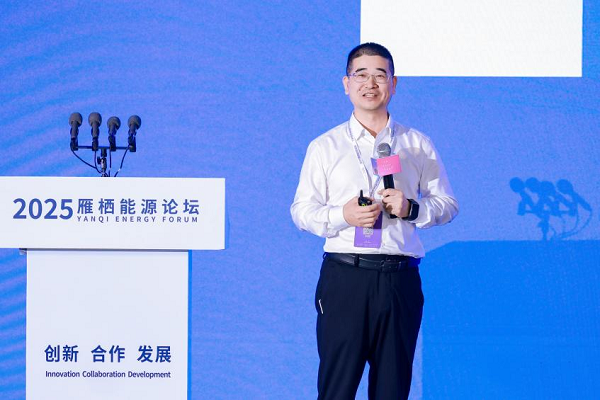
Zheng Nanfeng, Academician of the Chinese Academy of Sciences and Director of the Jiageng Laboratory for Innovation, delivered a keynote speech entitled “Hydrogen Industry: Opportunities, Challenges, and Way forward” He highlighted the critical role of green hydrogen in energy transition and analyzed its strategic importance in alleviating China’s oil and gas resource constraints and ensuring energy security. He outlined the core technological bottlenecks and industrial coordination challenges currently facing the green hydrogen industry and provided targeted policy and technological development recommendations.
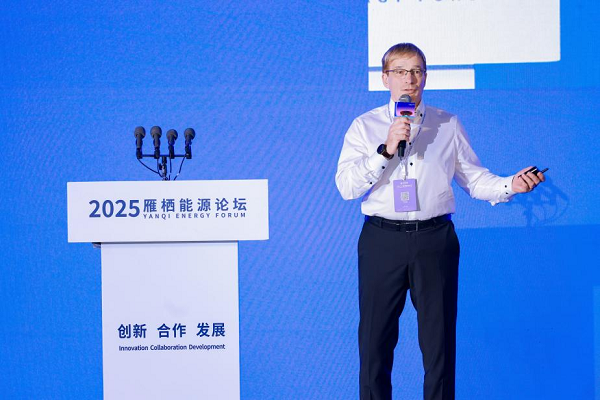
Rainer Kaesmaier, Managing Director of the Power Semiconductors Business Unit of Hitachi Energy, delivered a keynote speech entitled “Power Semiconductors for Emerging Applications and Collaboration for Future Energy Transition.” He focused on the crucial role of power semiconductors in power electronics applications, sharing Hitachi Energy’s latest research progress in innovative technologies and applications of devices such as FRDs, IGBTs, and IGCTs. He also provided a detailed comparative analysis of IGBT and IGCT design differences, offering strategic insights for the development of power semiconductor devices.
In the afternoon, six parallel forums were held simultaneously, focusing on topics including new power systems, renewable energy, hydrogen technologies, fossil energy, doctoral academic exchanges, and commercialization of research achievements. A total of 44 speakers—including renowned scholars, industry representatives, and young researchers—shared the latest research progress, industrial practices, and cutting-edge technological achievements. The parallel forums fully showcased the diversified and internationalized innovation ecosystem of the energy sector and provided an important platform for the deep integration of the science and technology innovation chain with the industrial chain.
At this new starting point and embarking on a new journey, Huairou Laboratory remains committed to its strategic goals. It will accelerate major scientific research endeavors, promote the commercialization of scientific achievements, and foster talent cultivation. The Laboratory will continue to build a strong strategic scientific and technological force in the energy sector, making greater contributions to safeguarding national energy security and achieving the country’s dual carbon goals.




